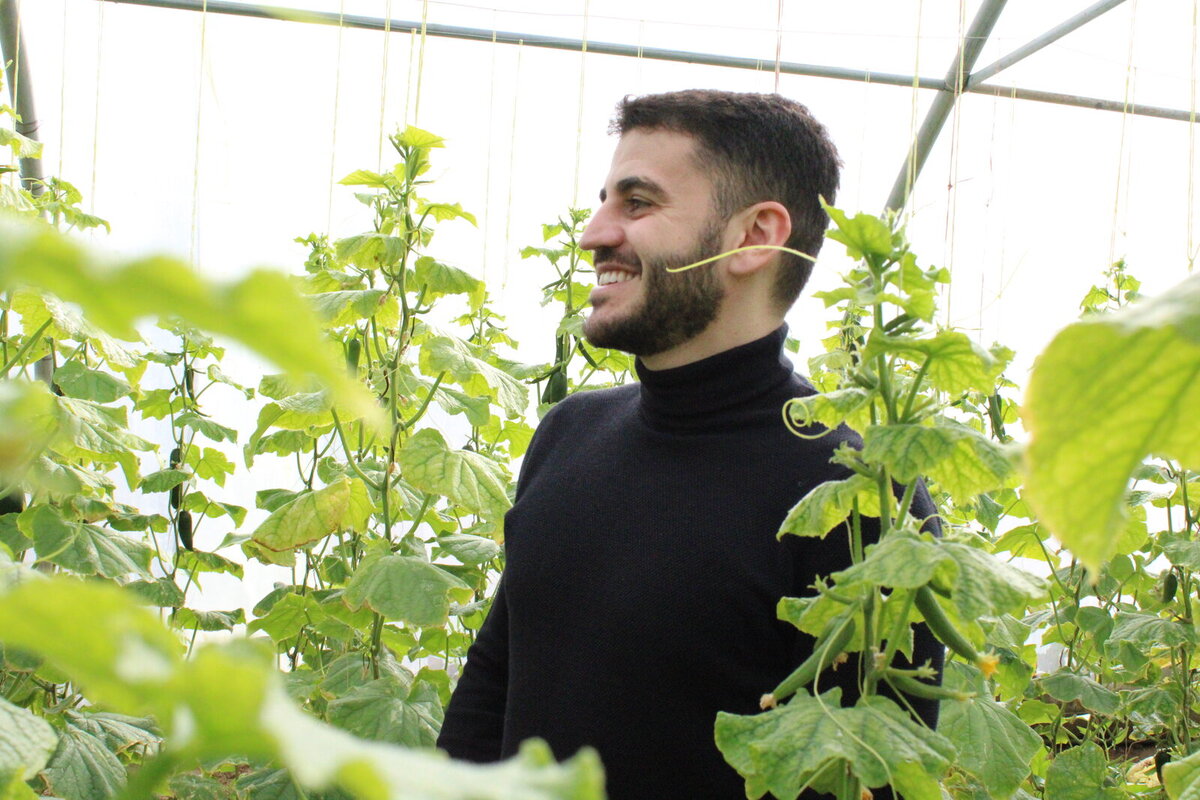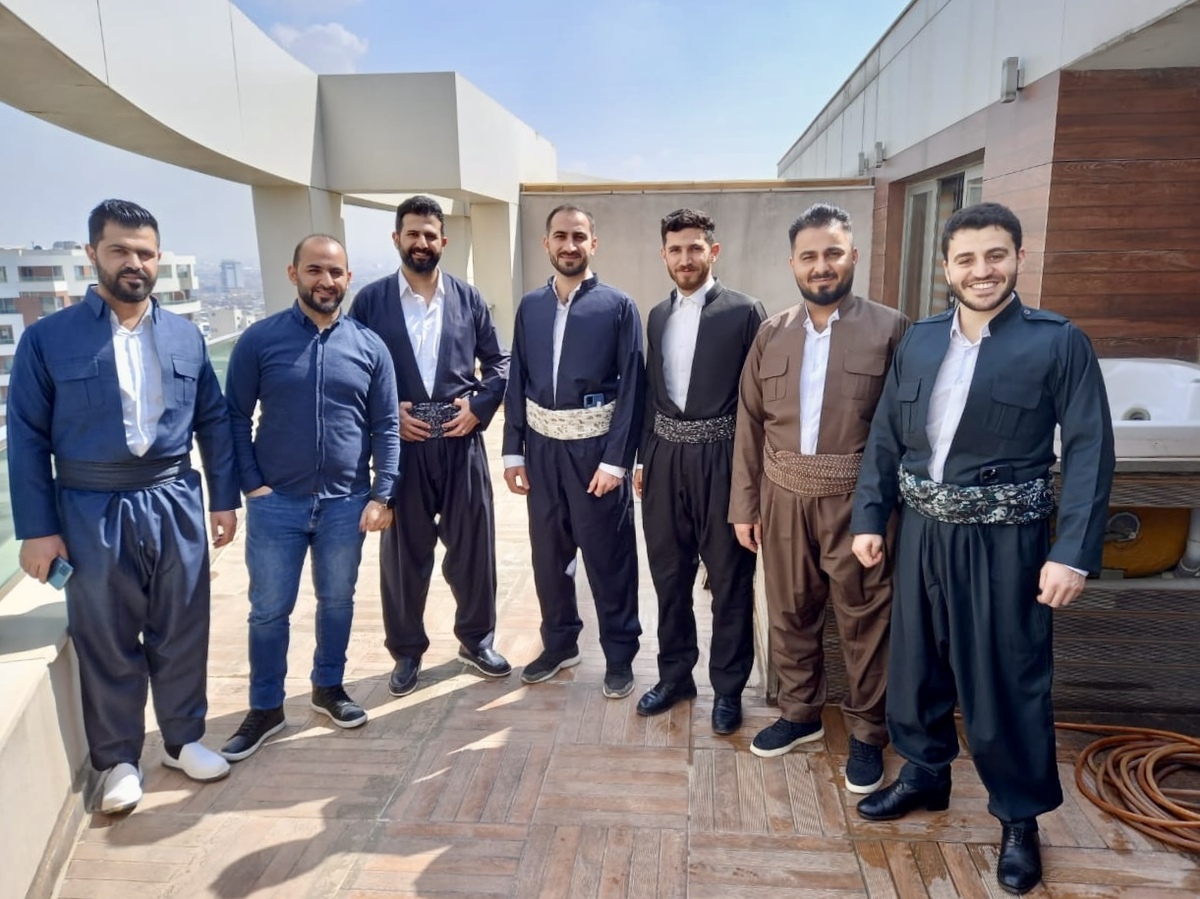Would you like to know more about our team at Caritas Czech Republic? We launched a series of interviews with our colleagues who will tell you more about our work across the world. This time we interviewed Gevorge Jenderedjian, our Senior Livelihoods Technical Advisor from our country office in Iraq.
Gevorge Jenderedjian is 32 years old and in Iraq, he is known as George Jend. He is originally from Armenia, where he studied and worked until 2017. George comes from a family of biologists. Following in their footsteps, he pursued his first degree in ecology. However, as he grew up, his interests shifted more toward the social sciences, and in his twenties, he majored in marketing before pursuing an MBA. Eventually, he found his way to Caritas Czech Republic in Iraq. He shares more about his life and work in the following interview.
What did you do before joining Caritas Czech Republic? How did you find out about Caritas and What drew you to Iraq?
I used to work in the humanitarian sector in Armenia. Then I came to Iraq. I have known Caritas since my early years in the humanitarian and development sectors. Before joining Caritas Czech Republic in Iraq, I was in touch with the Caritas team in Armenia on various occasions. I was following the news on the humanitarian disaster unfolding in Iraq from its very beginning. On some occasions, I expressed my views and willingness to join the Iraqi country office to my colleagues. I am fortunate to work with supporting and empowering colleagues throughout my career. I received an opportunity for a short deployment in Iraq, and it took off from there.
How long have you been working at Caritas Czech Republic and what is the scope of your work?
I have been working with Caritas Czech Republic for over two years, and it has been an exciting, sometimes challenging, but at the same time rewarding journey. At Caritas I work on four thematic areas: Programme Development, Quality Assurance, Resource Development, and External Engagement, including Emergency Livelihoods Cluster Co-Coordination. I have always enjoyed interacting with people, solving problems, innovating, working with budgets, and my current position at Caritas Czech Republic provides it all.
What are you currently involved in?
Since I work in the livelihoods sector, my team and I have conducted several assessments of the value-chain, labor market, vulnerability, and more. This basically means that we first learn as much as possible about the situation in the mentioned areas in Iraq and then we tailor our activities to help the locals the best we can. During my two years with Caritas Czech Republic, we have worked on 8 livelihoods projects that help people across Iraq to start businesses, find jobs or support farmers to increase agricultural productivity.
Nowadays, we are working on designing context-specific livelihoods projects in Mosul, Sinjar, Hamdaniya, and other locations in Iraq. I also support my colleagues in ensuring that our ongoing projects meet Caritas Czech Republic's institutional and technical standards. In addition, on behalf of our organization, I Co-Chair National Emergency Livelihoods Cluster.
What exactly is the Emergency livelihood cluster and what is your role as the co-chair?
When a disaster happens in a country, such as the war with so-called ISIS in Iraq, the formal coordination mechanisms are often overwhelmed or limited in their ability to respond to identified humanitarian needs. In such cases, clusters are formally activated. One of the clusters in Iraq is the Emergency Livelihoods Cluster (ELC). This cluster is chaired by UNDP and Co-Chaired by Caritas Czech Republic. It has nine sub-clusters with over 45 partners, primarily local and international organizations.
In a nutshell, the ELC is a coordination solution for responding to the immediate livelihoods needs of the affected population.
How has your life changed since you started working at Caritas Czech Republic?
Seeing the aftermaths of the crises first hand, I become more sensitive and concerned about the injustice that is happening around the world. But at the same time, I developed an immense appreciation for human qualities such as kindness, fairness, resilience, and optimism because I saw how they can do wonders.
At Caritas Czech Republic, innovation and self-development initiatives are always highly welcomed. Here, I have been able introduce and test new concepts of livelihoods interventions in the field, which has enhanced my and my organization’s technical capacity. This has made me more skilled and confident in my work.
Have you faced any challenges in your work?
We work in an ever-changing environment, so sometimes we are operating on different fronts at the same time and around the clock, which can be challenging. But once all is up and running, it's a fantastic feeling.
What are your future work plans?
The humanitarian response in Iraq is coming to an end. So, this year we will focus more on stabilization efforts. Which means we will help people restore their livelihoods after the war, improve infrastructure in cities, and support farmers and other small business owners.
What is your favorite aspect of your job?
There are many things I love about my job, but none of them would have mattered if I wasn't working with a dedicated, empowering, and professional team.
George with Caritas Czech Republic colleagues celebrating Kurdish Clothes Day
What do you do when you are not at work? What are your hobbies?
I enjoy shooting and editing photos and talking with my family and friends. I frequently go to the gym or go for evening walks. I also listen to music a lot, especially when I need to focus on work or unwind before bed.







